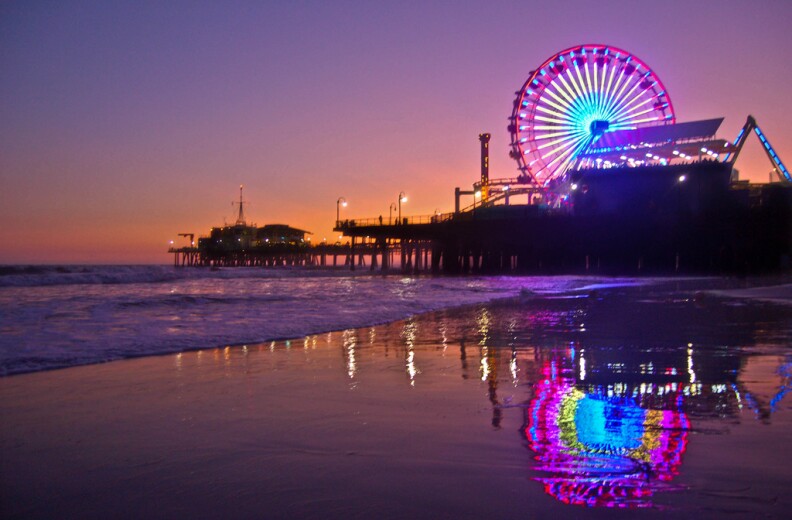The Federal Communications Commission may decide next week on new rules for Internet service providers.
Yesterday, President Obama came out to support net neutrality -- that's the idea where all the info online should flow freely to you, whether it's an email or a whole movie.
"In plain English, I'm asking them to recognize that for most Americans, the Internet has become an essential part of everyday communication and everyday life," he said in a statement, suggesting broadband access be treated like a public utility.
But what if the Internet WAS a public utility that the government ran?
In Santa Monica, it's been true for decades. The city runs its own fiber optic network that provides speeds up to 100gb.
Chief information officer Jory Wolf says the work to create it started in the mid-1990s when city leaders believed private businesses weren't investing in the infrastructure needed to bring high-speed Internet to Santa Monica.
"Had we not, it might have taken a lot longer for others to realize that there was a market here in creating Silicon Beach," he says.
Most customers are businesses -- entertainment companies and start-ups, for example -- and there are plans to roll-out service to homes starting next year.
Unlike most ISPs, Wolf also says the city has no plans to throttle certain services or create information "fast lanes" proposed by other companies.
He adds that the city's network is a great competitor to other ISPs that operate in the area because it's able to offer faster speeds and to respond to customers and new sign-ups faster.
However, there are critics of Internet service in the hands of municipalities who say it would hurt innovation and that some cities have a poor track record with infrastructure like roads.
But Wolf says it's worked successfully in Santa Monica.
"I know of at least 32 other cities that are following our model," he says, "so I expect it will be replicable and it will work everywhere else."



